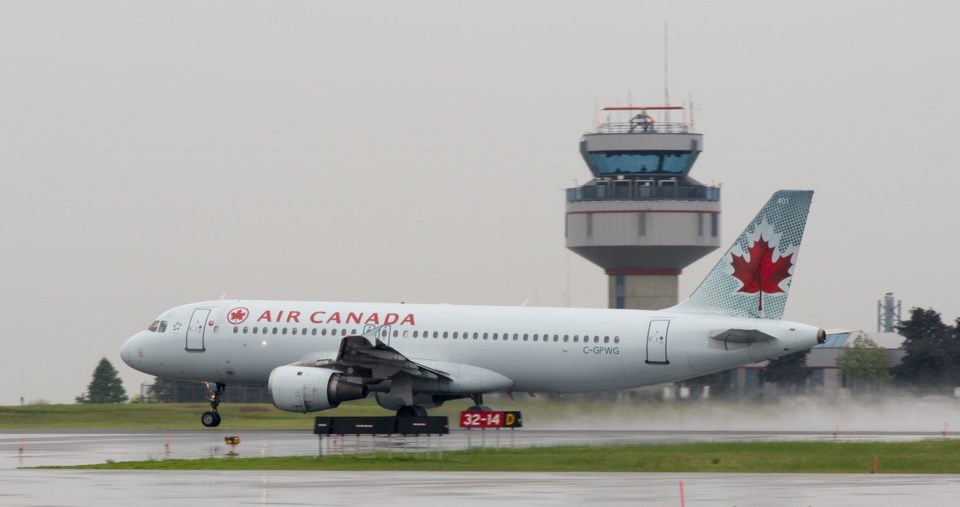Around 10,000 Air Canada flight attendants will be in a legal position to strike in less than two weeks, but the airline says it's confident there is enough runway left to reach a deal that avoids grounding numerous flights.
The Air Canada component of the Canadian Union of Public Employees says negotiations with the airline are set to resume Friday after its members voted 99.7 per cent in favour of a strike mandate.
The vote, which wrapped on Tuesday, means flight attendants can potentially walk off the job as soon as Aug. 16 at 12:01 a.m. with at least 72 hours' notice provided.
While that may have travellers already sweating about their summer vacation plans, Air Canada said it's too early to consider having to cancel flights.
"At this point, our focus is on achieving a new, negotiated agreement with CUPE, so it is premature to speculate or discuss possible contingencies," said Air Canada spokesman Peter Fitzpatrick in an email.
Air Canada said Tuesday it "firmly believes that there is more than enough time to reach such an agreement and avoid disrupting the plans of hundreds of thousands of travellers."
"Such a vote is a normal step in the negotiation process and does not mean that any disruption will take place," it said in a statement.
"Air Canada is determined to reach a fair and equitable collective agreement that recognizes the contributions of its flight attendants and supports the competitiveness and long-term growth of the company."
The negotiations cover flight attendants working for Air Canada's main operations and Air Canada Rouge. Flight attendants working for Jazz and PAL, which operate Air Canada Express flights, are not affected.
Meanwhile, CUPE said it is also optimistic it can avoid a work stoppage.
"We definitely don't want to go on strike. That is not the goal," said Wesley Lesosky, president of the Air Canada Component of CUPE.
"The goal is to obviously see if we had the leverage behind us, which came out extremely well, and we're hoping to ... come to a tentative agreement that both sides can move forward with."
The two sides have been in contract talks since the start of the year. The strike mandate vote kicked off July 28 after the airline and union concluded the conciliation process without reaching a deal.
Lesosky said Air Canada needs to "bring respect to the table" by moving on its asks, including for higher wages and the elimination of unpaid labour.
The union said entry-level Air Canada flight attendants' wages have increased 10 per cent, or $3 per hour, over the past 25 years, which has been far outpaced by inflation.
It also said flight attendants are not paid "for a significant portion of their time on the job," such as when performing safety checks, attending to onboard medical and safety emergencies, and assisting passengers with boarding and deplaning.
During prior rounds of negotiations, Lesosky said the process "just wasn't moving as fast as we'd like" when it came to the union's proposals. He said Air Canada hadn't met those asks with any "solid replies."
"There was lots of discussion. Some of it, I'll say, was good, but there was no resolve to those discussions," he said.
"So we felt we needed to go to the membership and say ... 'We need a strong strike mandate to go forward' — not meaning that we want to go on strike, but that we want to show the employer that, 'Hey, we're serious. The clock's ticking. We need to move forward.'"
Lesosky said he's hopeful the results of the vote will help push the needle, especially with the threat of a potential strike looming.
"Air Canada's big on brand. They have a nice solid brand. Let's keep it that way," he said.
"We definitely care about our passengers and we don't want to go on strike. Obviously, we would much rather be flying and dealing with our jobs. We just can't keep going on like this without a change."
This report by The Canadian Press was first published Aug. 6, 2025.
Companies in this story: (TSX:AC)
Sammy Hudes, The Canadian Press




